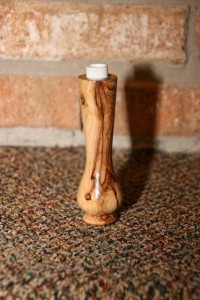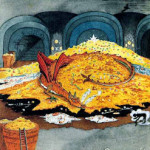Anointing of the sick is not counted as a sacrament of the gospel, meaning not ordained by Jesus. However the command and instructions are given by James the brother of Jesus in James 5:14-15.
Is any one of you sick? He should call the elders of the church to pray over him and anoint him with oil in the name of the Lord. And the prayer offered in faith will make the sick person well; the Lord will raise him up. If he has sinned, he will be forgiven.
 Protestants should not confuse anointing of the sick with the last rites. The last rites are not a sacrament, but rather the three sacraments of anointing the sick, confession/reconciliation, and the Lord’s Table all given to a person near death.
Protestants should not confuse anointing of the sick with the last rites. The last rites are not a sacrament, but rather the three sacraments of anointing the sick, confession/reconciliation, and the Lord’s Table all given to a person near death.
I have heard some interpret James 5:14-15 as combining prayers with good medicine. In biblical times, oil was not only used for ceremonial purposes, but was also considered medicinal (Rev 3:18). I see nothing wrong with this interpretation, especially since it is God who gave us the brain power to invent what can genuinely be called the miracles of modern medicine. Also, using medicine does not preclude a miraculous healing by God. It seems that often the greatest testimonies of the power of God come from physicians who find themselves saying to their patients, “I don’t know how you got better, but you’re better.”
However, when we leave anointing at the level of medicine, we miss much of the biblical symbolism, as anointing with oil is symbolic of receiving the Holy Spirit and being set apart for God’s service (1 Samuel 16:13, Lev. 8:1-13). Like baptism, anointing with oil is an act that touches us physically that can affect us spiritually.
In the Bible, oil is poured over people generously (Ps. 133, John 12:1-11) such that the person anointed would feel it and smell the scent. A person’s mental state is important to getting well, and any of us who has been sick can recall the smell of either sickness or antiseptics. Sick people often do not get to bathe, shower, or wash as they regularly would, so to cover them with a refreshing scent makes them and the people around them feel good emotionally. We replace the odor of death with the scent of life and the Holy Spirit. For this purpose I almost always use oil scented with something such as myrrh, and I find the reading of Psalm 23 during the anointing and prayer to be a great encouragement. Other posts in this series:
- The Sacraments as Means of Grace part 1: The Lord’s Supper
- The Sacraments as Means of Grace part 2: Baptism
- The Sacraments as Means of Grace part 3: Marriage
- The Sacraments as Means of Grace part 4: Ordination
- The Sacraments as Means of Grace part 5: Reconciliation
- The Sacraments as Means of Grace part 6: Anointing of the Sick
- The Sacraments as Means of Grace part 7: Confirmation
- The Sacraments as Means of Grace part 8: Acts of Mercy






